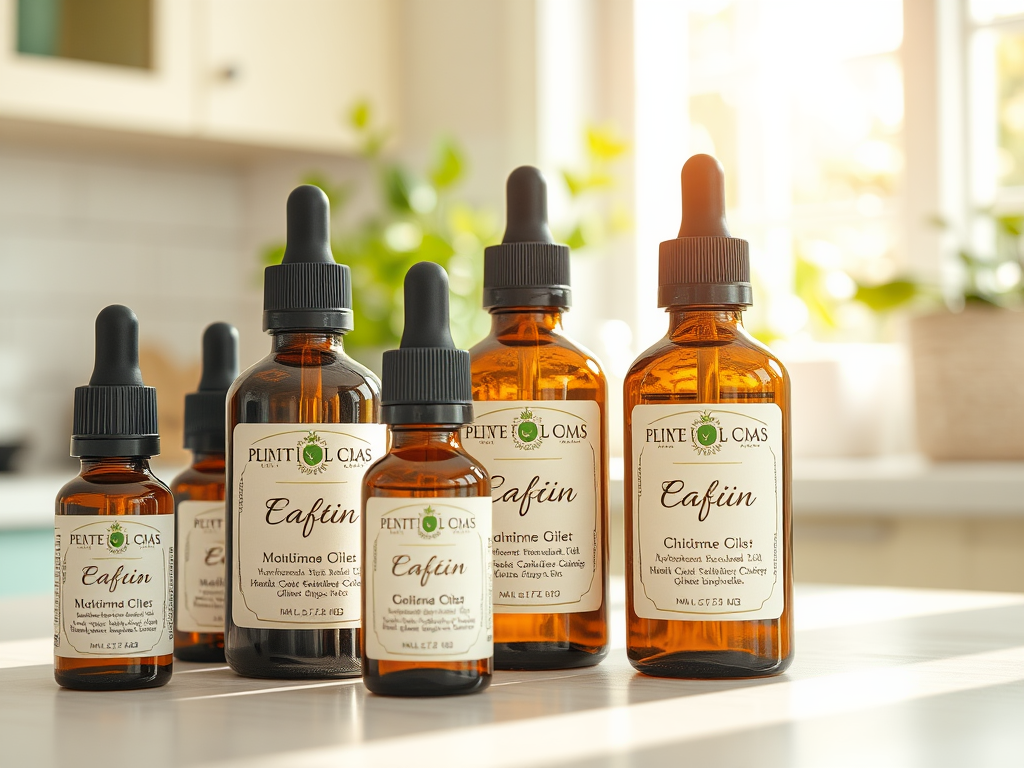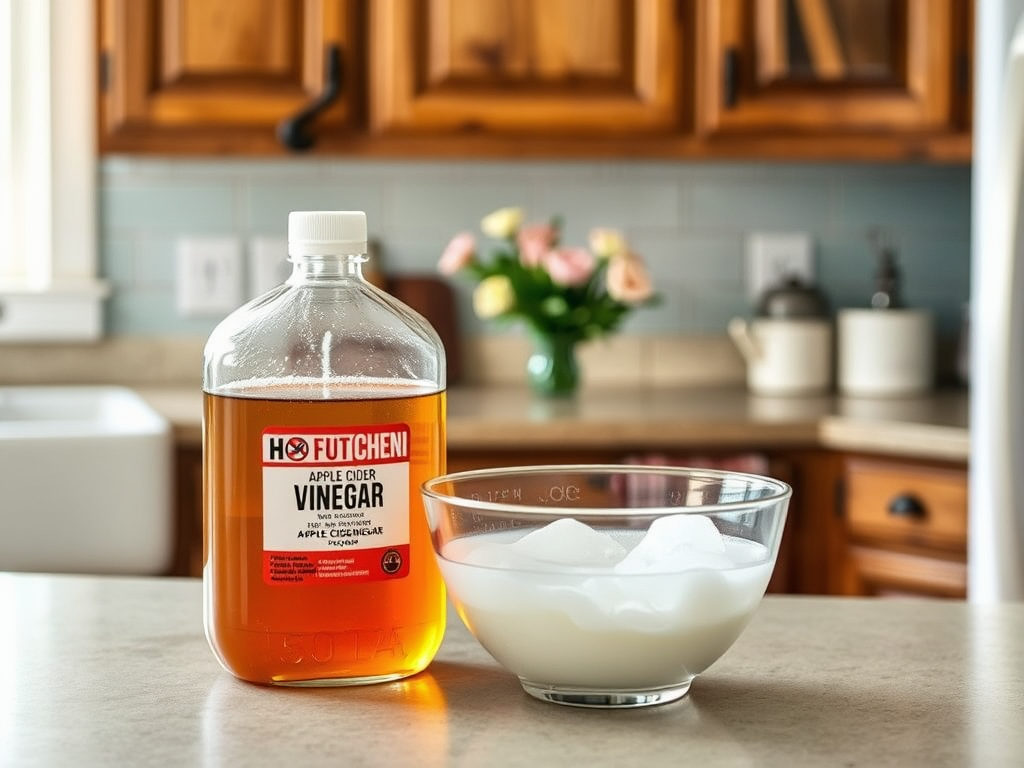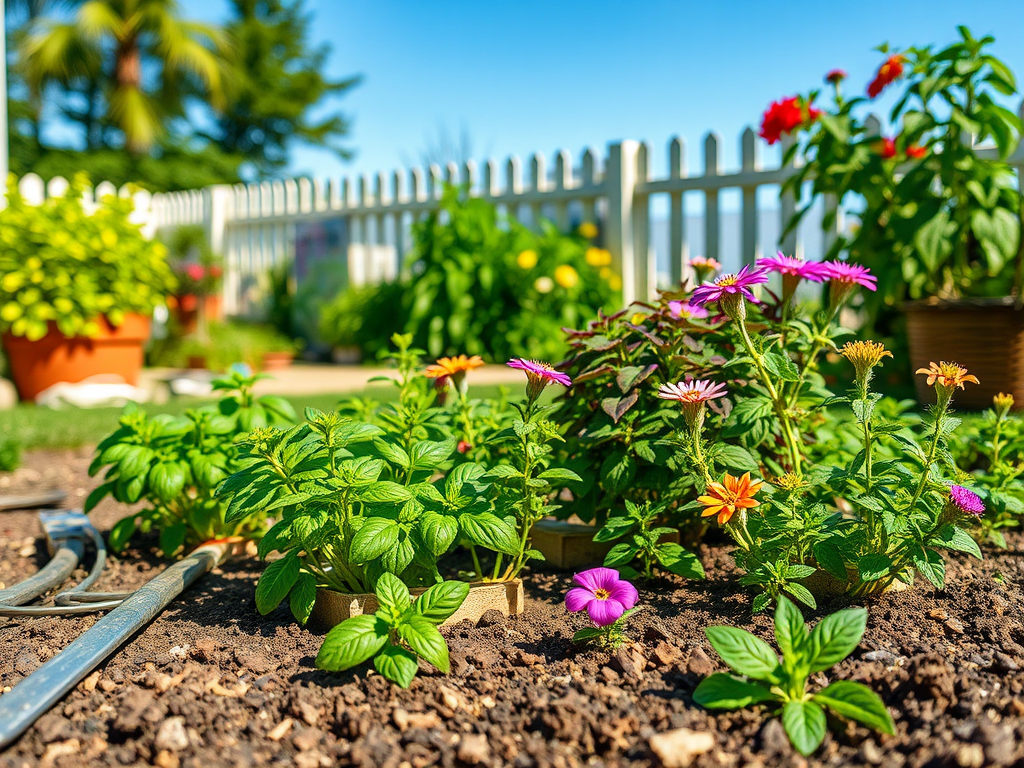5 Natural Ways to Kill Gnats Without Chemicals

Gnats can turn even the most peaceful spaces into a buzzing annoyance. These tiny flying pests typically invade homes, gardens, and even outdoor spaces, drawn by moisture and decaying organic matter. Fortunately, there’s no need to resort to chemical-heavy solutions when it comes to tackling gnat infestations. There are a plethora of natural methods that are not only effective but also environmentally safe. Instead of spraying synthetic pesticides, consider embracing home remedies that are both easy to implement and cost-effective. This guide will equip you with five powerful strategies to eliminate gnats naturally, ensuring a gnat-free environment that’s safe for your family and pets.
Let’s dive into these eco-friendly methods and explore how you can reclaim your space from these pesky insects.
Essential Oils as Natural Repellents

Essential oils are a fantastic way to deter not only gnats but a host of other insects as well. Scents like peppermint, lavender, and eucalyptus are especially effective due to their strong aromas that repel gnats. To create your own gnat-repelling spray, you’ll need a few essential ingredients. Start by mixing a few drops of your selected essential oil with water in a spray bottle. A good ratio to aim for is about 10 drops of oil for every cup of water. After shaking well, this mixture can be applied to areas where gnats are often spotted. For maximum effectiveness, reapply the spray every few days or after cleaning the area.
- Peppermint oil
- Lavender oil
- Eucalyptus oil
Homemade Traps

Setting up homemade traps can be an effective strategy in capturing and killing gnats without needing heavy-duty chemicals. With just a few simple ingredients found in your kitchen, you can create traps that will lure gnats in and trap them effectively. One of the most popular traps involves a combination of vinegar and dish soap, which attracts gnats while ensuring they can’t escape. Here’s how to make this effective trap:
| Ingredients | Instructions |
|---|---|
| Apple cider vinegar | Combine vinegar with a few drops of dish soap in a bowl. |
| Dish soap | Leave the bowl uncovered in areas where gnats are present. |
| Bowl | Ensure the vinegar mix is easy access for the gnats. |
The sweet scent of apple cider vinegar acts as a magnet for gnats, drawing them into the mixture. It’s a simple yet potent method that you can use to significantly reduce gnat numbers in your surroundings.
Natural Remedies Using Plants
Certain plants naturally repel gnats, serving as both attractive decor and pest control. For example, plants such as basil, mint, and marigolds release scents that gnats find unpleasant. Not only do these plants thrive in gardens and homes, but they can also safeguard your green spaces from infestations. Depending on your available space, consider establishing a small herb garden or placing potted plants near entrances. Here is a brief list of beneficial plants you might want to consider:
- Basil – A fragrant herb that thrives indoors and outdoors.
- Mint – An aromatic plant that also acts as a gnat deterrent.
- Marigolds – Bright flowers known for their pest-repelling properties.
Adding these plants to your home or garden can be both aesthetically pleasing and functional in keeping gnats away. They require minimal maintenance while doing double duty in pest management.
Maintaining Cleanliness and Hygiene
Another crucial aspect of gnat control lies in maintaining cleanliness and proper hygiene. Regular cleaning and tidiness drastically reduce the attraction points for gnats. These pests are drawn to moisture and organic matter, so addressing these areas can make a huge difference. Start by disposing of overripe fruit and ensuring you clean spills immediately. Furthermore, an often-overlooked area is the sink and garbage disposal where food particles and moisture can accumulate. To prevent gnats from breeding, adopt the following routine:
- Wipe down kitchen counters daily to remove food residues.
- Ensure that indoor plants’ soil is dry to reduce moisture.
- Regularly take out the garbage and clean disposal units.
By adhering to these cleaning practices, you’ll be significantly less likely to encounter a gnat problem in your home.
Using Baking Soda and Vinegar
Baking soda and vinegar are versatile household staples that can also be used against gnats. Together, they create a fizzy reaction that can help eliminate gnat larvae lingering in drains. This method is particularly effective for preventing infestations right from the source. To apply this technique, simply pour a mixture of equal parts baking soda and vinegar down your drains. Allow it to sit for about 30 minutes so that it can effectively work through the grime, followed by flushing it with hot water. This can create an environment that is less hospitable for gnats to thrive.
Conclusion
Embracing natural pest control methods offers a safe and effective way to combat gnats in your living space. Instead of using chemical-laden products, you can take advantage of various alternatives like essential oils, homemade traps, natural plants, cleanliness routines, and pantry staples. All of these methods seamlessly integrate into your lifestyle, promoting a healthier and safer home. By proactively implementing these strategies, you maintain a gnat-free environment that is both pleasant and inviting.
Frequently Asked Questions
- What attracts gnats to my home? Gnats are typically attracted to moisture, decaying fruit, and indoor plants with overwatered soil.
- How can I tell if I have a gnat infestation? If you notice a high number of small flying insects around food, plants, or sinks, you likely have a gnat problem.
- Can I use these methods outdoors? Yes, many of these methods can be applied to outdoor areas, such as gardens and patios, to deter gnats.
- How long will it take to see results? Results can vary, but you may notice a decrease in gnat activity within a few days to a week of applying these natural methods.
- Are these methods safe for pets? Yes, the discussed methods are generally safe for pets. However, always monitor your pets when introducing new substances into their environments.


